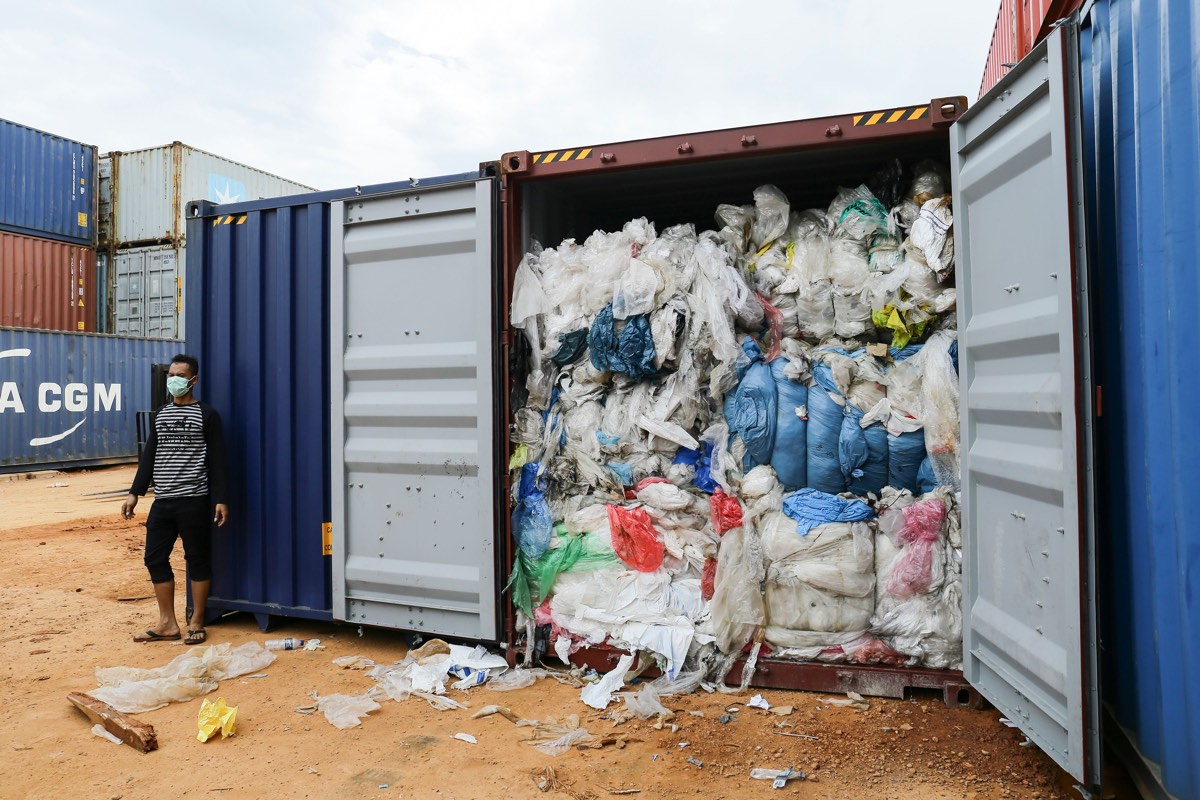
The Plastic We 'Recycle' Is Actually Horrible for the Environment

Get the world’s most fascinating discoveries delivered straight to your inbox.
You are now subscribed
Your newsletter sign-up was successful
Want to add more newsletters?

Delivered Daily
Daily Newsletter
Sign up for the latest discoveries, groundbreaking research and fascinating breakthroughs that impact you and the wider world direct to your inbox.

Once a week
Life's Little Mysteries
Feed your curiosity with an exclusive mystery every week, solved with science and delivered direct to your inbox before it's seen anywhere else.

Once a week
How It Works
Sign up to our free science & technology newsletter for your weekly fix of fascinating articles, quick quizzes, amazing images, and more

Delivered daily
Space.com Newsletter
Breaking space news, the latest updates on rocket launches, skywatching events and more!

Once a month
Watch This Space
Sign up to our monthly entertainment newsletter to keep up with all our coverage of the latest sci-fi and space movies, tv shows, games and books.

Once a week
Night Sky This Week
Discover this week's must-see night sky events, moon phases, and stunning astrophotos. Sign up for our skywatching newsletter and explore the universe with us!
Join the club
Get full access to premium articles, exclusive features and a growing list of member rewards.
When you drop your plastic waste into the recycling bin, it most likely makes its way around the world, where it can pose a health and security risk to developing countries, according to a new Guardian report.
The planet is getting buried under plastic: beaches are littered with it, sea life is choking on it, and a new report finds that we're even drinking a credit-card-size amount of plastic every week from our drinking water. Needless to say, recycling is a good idea.
Until it's done wrong. That plastic bottle that you drop into a recycling bin on the streets of New York isn't always broken down and crafted into a brand-new product. Sometimes, it ends up across the world in someone's backyard, taking its place among scores of supermarket bags and snack pouches.
Related: If You Throw a Compostable Cup in the Trash, Does It Still Break Down?
The U.S. ships about 1 million tons of plastic waste overseas every year. Much of that plastic used to end up in China, where it was recycled — that is, until the country abruptly stopped most of the plastic waste imports in 2017. Now, a good part of U.S. plastic waste is shipped to the world's poorest countries for recycling, including Bangladesh, Laos, Ethiopia and Senegal, the Guardian reported.
Last year, about 68,000 shipping containers' worth of plastic recycling waste from the U.S. were shipped to developing countries, which mismanage over 70% of their own plastic waste, they wrote. For example, Malaysia dumps or improperly disposes 55% of its own plastic waste, yet it receives more U.S. recyclables than any other country, they wrote. What's more, an estimated 20% to 70% of plastic waste that goes to recycling facilities worldwide is unusable and discarded as trash, according to the report.
Beyond just having to live among the trash that litters their beaches and streets, the increasing number of plastic processing facilities that are popping up in these countries is posing health risks to citizens who live among contaminated water supplies and the smell of plastic fumes, they wrote.
Get the world’s most fascinating discoveries delivered straight to your inbox.
This report is part of the Guardian's six-month-long Toxic America series.
- 7 Everyday Toxic Things You Shouldn't Toss in the Trash
- In Photos: Litter Transforms Into Sea Creatures in Stunning Shots
- In Images: The Great Pacific Garbage Patch
Originally published on Live Science.

Yasemin is a staff writer at Live Science, covering health, neuroscience and biology. Her work has appeared in Scientific American, Science and the San Jose Mercury News. She has a bachelor's degree in biomedical engineering from the University of Connecticut and a graduate certificate in science communication from the University of California, Santa Cruz.
 Live Science Plus
Live Science Plus





